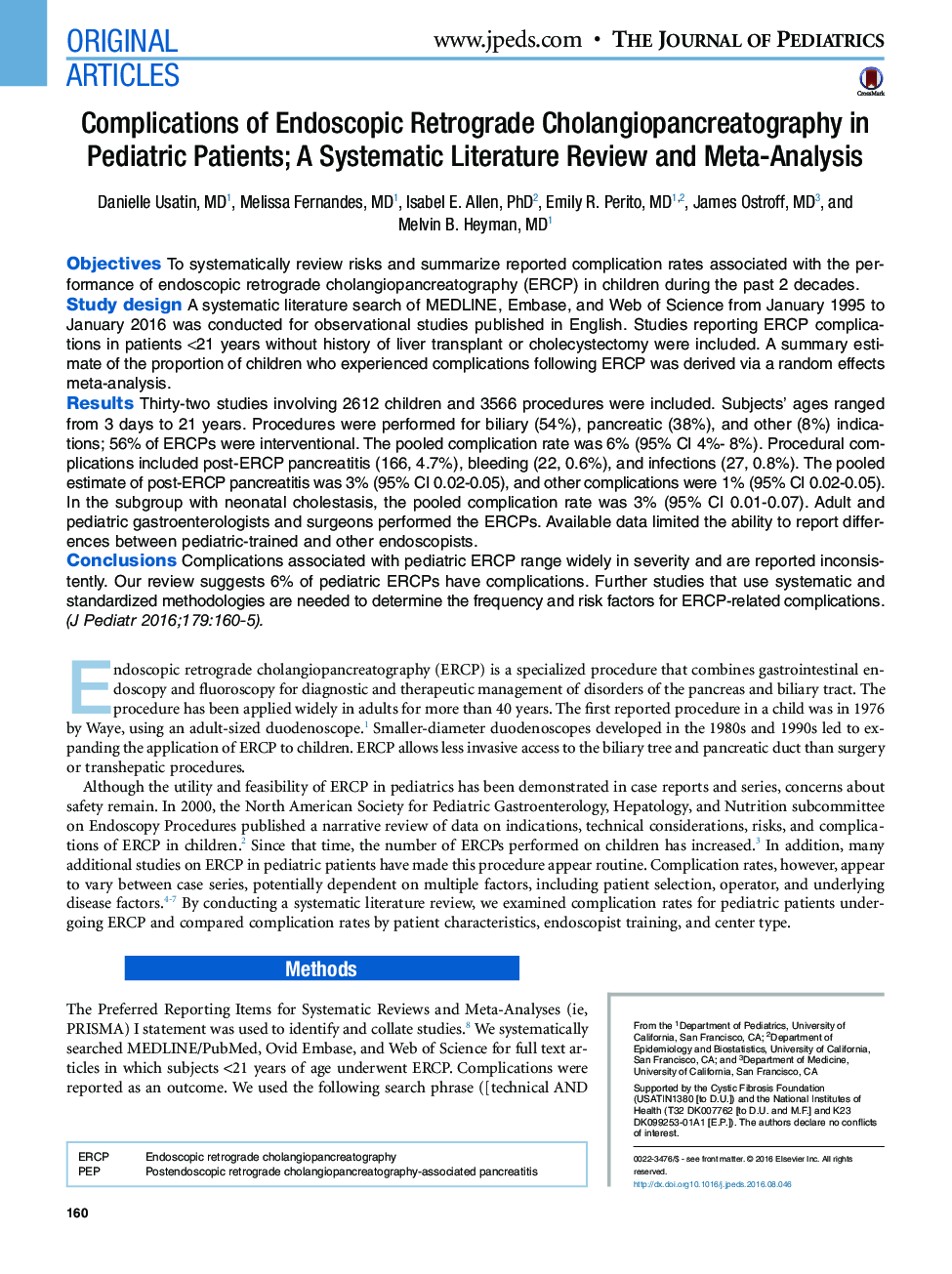| Article ID | Journal | Published Year | Pages | File Type |
|---|---|---|---|---|
| 5719529 | The Journal of Pediatrics | 2016 | 9 Pages |
ObjectivesTo systematically review risks and summarize reported complication rates associated with the performance of endoscopic retrograde cholangiopancreatography (ERCP) in children during the past 2 decades.Study designA systematic literature search of MEDLINE, Embase, and Web of Science from January 1995 to January 2016 was conducted for observational studies published in English. Studies reporting ERCP complications in patients <21 years without history of liver transplant or cholecystectomy were included. A summary estimate of the proportion of children who experienced complications following ERCP was derived via a random effects meta-analysis.ResultsThirty-two studies involving 2612 children and 3566 procedures were included. Subjects' ages ranged from 3 days to 21 years. Procedures were performed for biliary (54%), pancreatic (38%), and other (8%) indications; 56% of ERCPs were interventional. The pooled complication rate was 6% (95% CI 4%- 8%). Procedural complications included post-ERCP pancreatitis (166, 4.7%), bleeding (22, 0.6%), and infections (27, 0.8%). The pooled estimate of post-ERCP pancreatitis was 3% (95% CI 0.02-0.05), and other complications were 1% (95% CI 0.02-0.05). In the subgroup with neonatal cholestasis, the pooled complication rate was 3% (95% CI 0.01-0.07). Adult and pediatric gastroenterologists and surgeons performed the ERCPs. Available data limited the ability to report differences between pediatric-trained and other endoscopists.ConclusionsComplications associated with pediatric ERCP range widely in severity and are reported inconsistently. Our review suggests 6% of pediatric ERCPs have complications. Further studies that use systematic and standardized methodologies are needed to determine the frequency and risk factors for ERCP-related complications.
